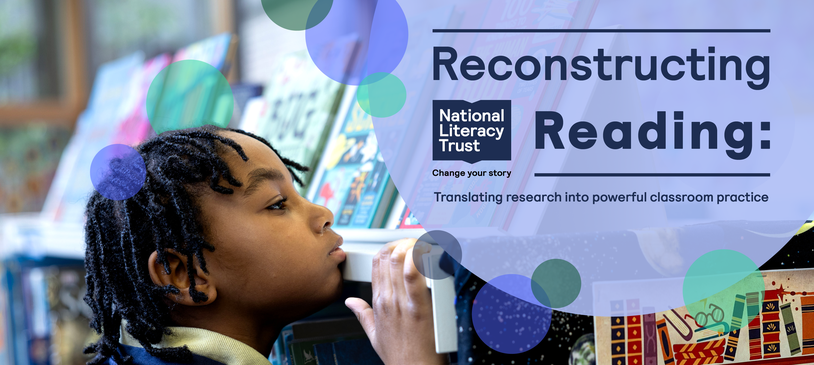Every child has the right to read. But what children read – and the ways they engage with reading – are changing.
In the classroom, this presents new challenges and opportunities. How we approach fluency and comprehension must also incorporate the shifting social factors that shape how each child learns and experiences reading.
It’s time to rebalance the connection between teaching reading and reading for pleasure. It’s time to reconstruct reading.
In 2025 we launched Reconstructing Reading: Translating research into powerful classroom practice, an inspirational online festival bringing together international thought leaders and experienced classroom practitioners to unpick and illuminate reading instruction - with classroom strategies to empower every learner's unique reading journey, in ways that work today.
We welcomed Timothy Shanahan, Dr Victoria Murphy, Dr Geraldine Magennis-Clarke, Professor Natalia I. Kucirkova, Dr Sarah Moseley and more - with themes spanning inclusive practice for EAL, dyslexia and SEND, plus teacher training, literacy pedagogy and assessment, e-reading and AI tools, early literacy and learning development.. We look forward to expanding on this content in 2026.
When is the next Reconstructing Reading event?
Joining us for the next one? Sign up using the form below to be notified when registration opens for Reconstructing Reading 2026.
